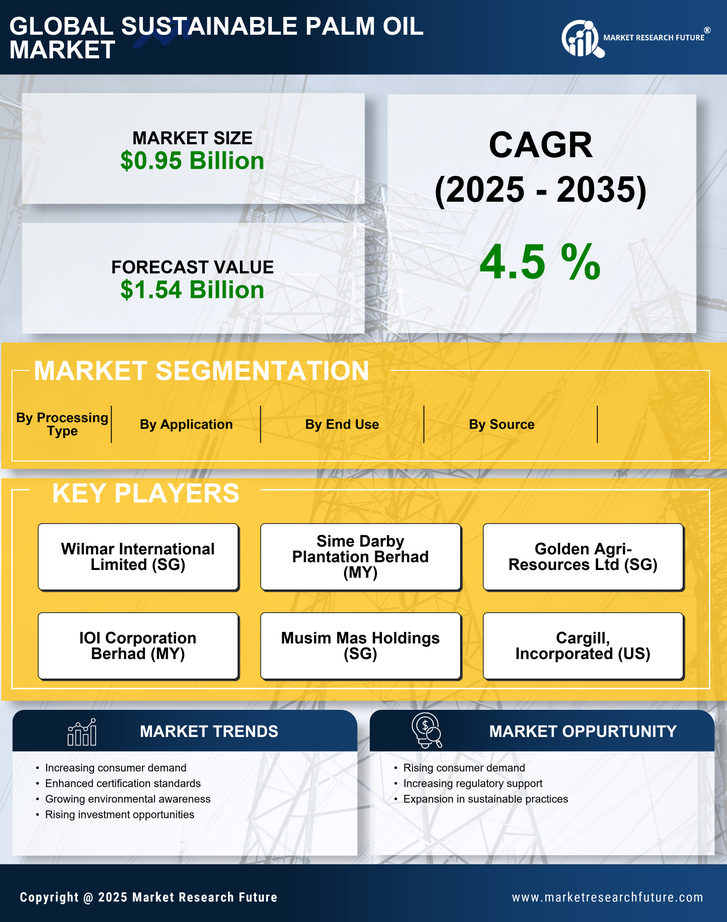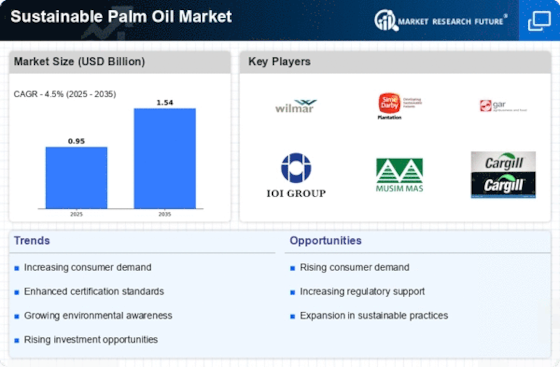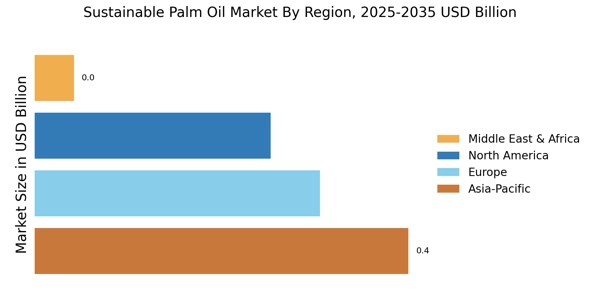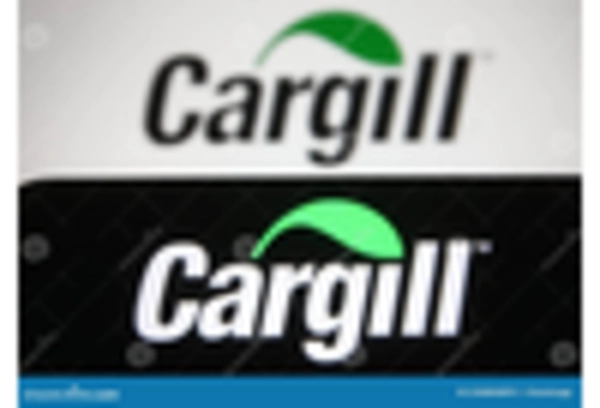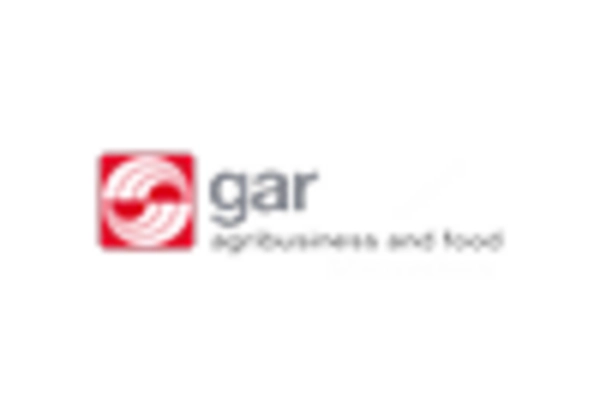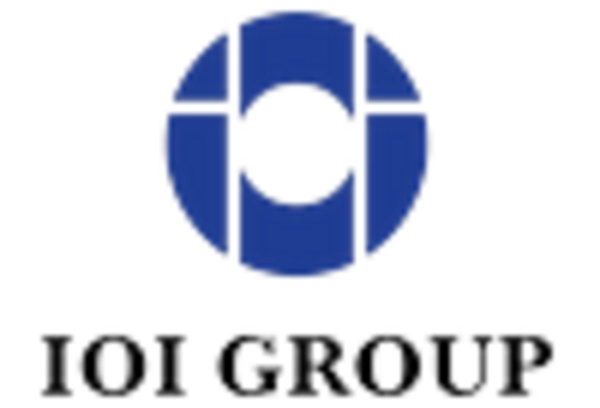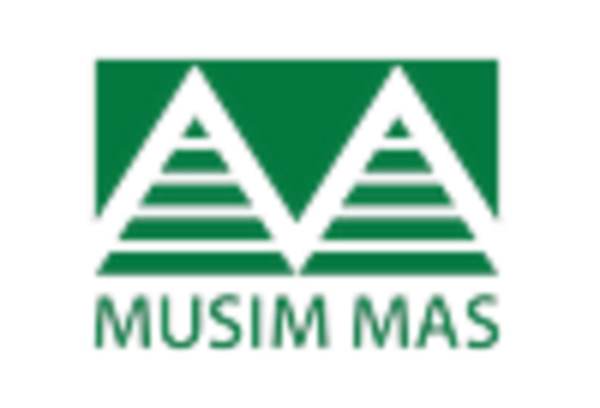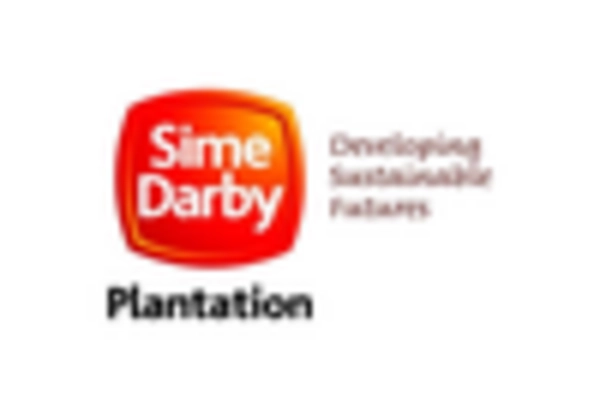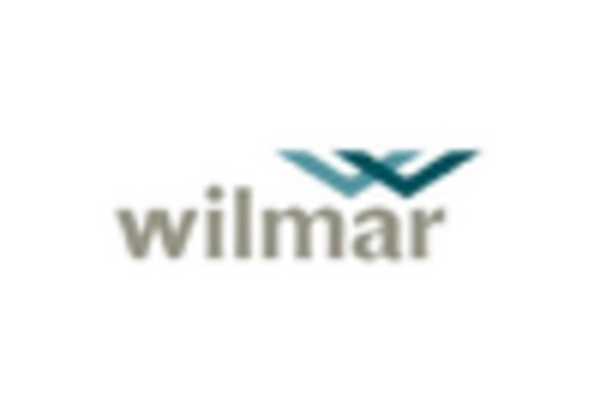Rising Environmental Awareness
The Sustainable Palm Oil Market is experiencing a notable shift as consumers become increasingly aware of environmental issues. This heightened awareness drives demand for sustainably sourced products, compelling manufacturers to adopt eco-friendly practices. According to recent data, approximately 70% of consumers express a preference for products that are certified sustainable. This trend suggests that companies within the Sustainable Palm Oil Market must prioritize sustainability in their sourcing and production processes to remain competitive. As a result, brands that align with consumer values regarding environmental stewardship are likely to see enhanced market share and customer loyalty. Furthermore, this growing consciousness around environmental impact may lead to increased investments in sustainable palm oil initiatives, thereby fostering innovation and improving overall industry standards.
Technological Advancements in Agriculture
Technological advancements are playing a crucial role in the Sustainable Palm Oil Market, as innovations in agricultural practices enhance sustainability. Precision agriculture, for instance, allows farmers to optimize resource use, reducing waste and environmental impact. The adoption of satellite imagery and data analytics enables better monitoring of palm oil plantations, ensuring compliance with sustainability standards. Reports suggest that the implementation of such technologies can increase yield by up to 30% while minimizing deforestation. Consequently, the Sustainable Palm Oil Market is likely to benefit from improved efficiency and reduced environmental footprint, making it more attractive to investors and consumers alike. This technological shift may also lead to the development of new sustainable palm oil products, further diversifying the market.
Corporate Social Responsibility Initiatives
In the Sustainable Palm Oil Market, corporate social responsibility (CSR) initiatives are becoming increasingly prevalent. Companies are recognizing the importance of ethical sourcing and the impact of their operations on local communities and ecosystems. Many organizations are now committing to sourcing 100% sustainable palm oil, which aligns with the principles of CSR. This commitment not only enhances brand reputation but also attracts environmentally conscious consumers. Data indicates that firms actively engaging in CSR practices can experience up to a 20% increase in customer loyalty. As such, the Sustainable Palm Oil Market is likely to see a rise in partnerships with NGOs and local communities, fostering a more sustainable supply chain and promoting social equity.
Government Incentives for Sustainable Practices
Government incentives are increasingly shaping the Sustainable Palm Oil Market, as policymakers recognize the need for sustainable agricultural practices. Various countries are implementing subsidies and tax breaks for companies that commit to sustainable palm oil production. These incentives encourage farmers to adopt environmentally friendly practices, thereby reducing deforestation and promoting biodiversity. For instance, some regions have reported a 15% increase in sustainable palm oil production due to government support. This trend indicates that the Sustainable Palm Oil Market may experience accelerated growth as more stakeholders take advantage of these incentives. Furthermore, such policies can enhance the overall sustainability of the industry, aligning economic interests with environmental goals.
Growing Demand from Food and Cosmetic Industries
The Sustainable Palm Oil Market is witnessing a surge in demand from the food and cosmetic sectors, which are increasingly prioritizing sustainability in their supply chains. As consumers become more discerning, brands in these industries are seeking certified sustainable palm oil to meet consumer expectations. Recent statistics reveal that the food industry accounts for approximately 60% of palm oil consumption, with a significant portion now sourced sustainably. This trend suggests that companies within the Sustainable Palm Oil Market must adapt to changing consumer preferences to maintain market relevance. Additionally, the cosmetic industry is also shifting towards sustainable ingredients, further driving demand for sustainably sourced palm oil. This dual demand from both sectors is likely to bolster the growth of the Sustainable Palm Oil Market in the coming years.
